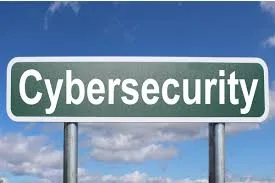Watch Serial 👇👇
In today’s hyper-connected world, where data breaches and cyberattacks occur daily, the demand for cybersecurity professionals is higher than ever. Whether you’re protecting a small business or defending government systems, having the right cybersecurity skills can launch you into one of the most secure and rewarding careers in tech.
This comprehensive guide will walk you through the essential cybersecurity skills, career paths, educational routes, and tools needed to thrive in this fast-growing field.
1. What Are Cybersecurity Skills?
Cybersecurity skills are the technical and strategic abilities required to protect networks, systems, data, and digital infrastructure from cyber threats. These skills are used by professionals to prevent, detect, and respond to cyberattacks such as malware infections, phishing, ransomware, data breaches, and DDoS attacks.
Cybersecurity skills are multidisciplinary—spanning IT, networking, coding, compliance, risk management, and human behavior.
2. Why Cybersecurity Skills Matter
According to reports from (ISC)² and Cybersecurity Ventures:
- There will be 3.5 million unfilled cybersecurity jobs globally by 2025.
- Cybercrime is projected to cost the world $10.5 trillion annually by 2025.
Strong cybersecurity skills are essential for:
- Protecting critical infrastructure (banks, healthcare, government)
- Ensuring regulatory compliance (GDPR, HIPAA, ISO 27001)
- Preserving customer trust and corporate reputation
- Responding to growing threats in AI, IoT, and cloud computing
3. Core Cybersecurity Skills for Professionals
Whether you’re starting your journey or looking to specialize, these are the must-have cybersecurity skills across domains:
🔐 Technical Skills
| Skill | Description |
|---|---|
| Networking & Protocols | Understanding TCP/IP, DNS, HTTP, SSL/TLS, VPNs |
| System Administration | Managing Linux/Windows OS, secure configuration |
| Firewalls & IDS/IPS | Using tools like Snort, Suricata, pfSense |
| Cryptography | Implementing encryption, hashing, PKI, SSL/TLS |
| Security Information & Event Management (SIEM) | Monitoring and analyzing threats via tools like Splunk, QRadar |
| Vulnerability Assessment & Penetration Testing | Using tools like Nessus, Metasploit, Burp Suite |
| Malware Analysis | Reverse engineering, sandboxing, signature creation |
| Cloud Security | Securing AWS, Azure, GCP infrastructure and IAM |
| Secure Coding Practices | Avoiding SQL injection, XSS, CSRF vulnerabilities |
🛡️ Soft & Analytical Skills
- Critical thinking
- Problem-solving under pressure
- Attention to detail
- Incident response and decision-making
- Communication and collaboration with non-technical teams
4. In-Demand Cybersecurity Job Roles
Mastering cybersecurity skills opens doors to a wide range of roles:
| Job Title | Description |
|---|---|
| Security Analyst | Monitors systems for threats, investigates alerts |
| Penetration Tester (Ethical Hacker) | Simulates attacks to find vulnerabilities |
| Security Engineer | Designs and implements secure networks and systems |
| SOC Analyst | Works in Security Operations Center to respond to threats |
| Incident Responder | Handles cyber incidents and containment |
| Cloud Security Engineer | Secures cloud platforms and resources |
| CISO (Chief Information Security Officer) | Leads security strategy and compliance |
| Malware Analyst | Analyzes and classifies malicious code |

5. Educational Pathways to Cybersecurity
🎓 Formal Education
- Bachelor’s or Master’s degree in:
- Computer Science
- Information Technology
- Cybersecurity
- Engineering
💻 Online Courses & Platforms
- Coursera: IBM Cybersecurity, Google IT Security
- edX: MIT, Harvard cybersecurity programs
- Udemy: Hands-on ethical hacking and SOC training
- Cybrary, TryHackMe, Hack The Box: Practice-focused platforms
📜 Certifications (Valuable for Career Entry & Progression)
| Certification | Focus Area |
|---|---|
| CompTIA Security+ | Entry-level cybersecurity knowledge |
| Certified Ethical Hacker (CEH) | Pen testing and hacking tools |
| Certified Information Systems Security Professional (CISSP) | Advanced enterprise security |
| Certified Information Security Manager (CISM) | Security governance and leadership |
| GIAC Security Essentials (GSEC) | Hands-on practical security skills |
| AWS/Azure/GCP Security Certifications | Cloud-specific defense |
6. Tools Every Cybersecurity Professional Should Know
| Tool | Purpose |
|---|---|
| Wireshark | Network packet analysis |
| Nmap | Network discovery and vulnerability scanning |
| Burp Suite | Web application security testing |
| Metasploit | Penetration testing |
| Kali Linux | Security testing OS with preinstalled tools |
| Splunk | Log analysis and SIEM |
| OpenVAS | Vulnerability scanning |
| Hashcat/John the Ripper | Password cracking tools |
| Suricata/Snort | Intrusion detection systems |
7. Career Growth and Salary Expectations
Cybersecurity offers high job security, upward mobility, and strong salaries.
| Job Role | Average Salary (US) |
|---|---|
| Security Analyst | $70,000 – $95,000 |
| Penetration Tester | $90,000 – $120,000 |
| Security Engineer | $100,000 – $140,000 |
| SOC Analyst (L1-L3) | $60,000 – $130,000 |
| Cloud Security Engineer | $120,000 – $160,000 |
| CISO | $180,000 – $250,000+ |
Salaries vary based on region, certification, and experience. Remote roles and contract positions can offer higher rates, especially in fintech, healthcare, and government sectors.
8. Future of Cybersecurity Skills
With the rise of AI, IoT, blockchain, and quantum computing, cybersecurity professionals must continually evolve their skillsets.
Trends to Watch:
- AI and ML in threat detection
- Zero Trust Architecture
- DevSecOps integration
- Ransomware resilience
- Cybersecurity for critical infrastructure
- Post-quantum cryptography
Lifelong learning is key to staying ahead in this ever-changing landscape.
Conclusion
Cybersecurity skills are not just technical — they’re essential to protecting our digital way of life. Whether you’re just starting or deep into your security journey, mastering both foundational and emerging skills will set you apart in the job market.
The path is challenging but highly rewarding. With the right mix of training, certifications, and experience, you can become a trusted defender in a world increasingly dependent on secure digital systems.
